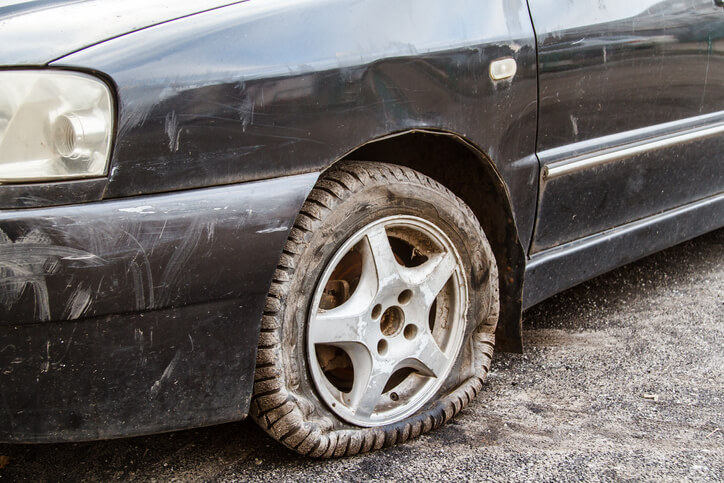As the temps start to drop in Northern Mississippi it is important to remember that changes in the weather can have a significant impact on tire pressure. Your car may or may not alert you to a drop in pressure, so the Chatham Gilder Howell Pittman team urges you to keep an eye on your tires if you notice it is a bit colder outside than normal. Failure to pay attention to your tire pressure may result in an accident that injures you or others.
What Happens to Tire Pressure in Cold Weather?
When the tire pressure warning light comes on, it typically means you have a leak. But that is not necessarily true this time of year, when the temperature can vary widely from day to day.
According to the Goodyear Tire & Rubber Company, “for every 10 degrees of temperature drop, tires will drop 1-2 pounds of pressure.” This is because air molecules move more slowly — and exert less pressure on their surroundings — as they cool down.
(The opposite is true as the temperature increases, making this advice important to keep in mind during Mississippi’s steamy summer months as well.)
Why is Proper Tire Pressure Important?
Paying attention to your tire pressure is important because your car is designed to drive best when its tires are inflated to a specific pressure. Driving with tires that are improperly inflated can make the car more difficult to steer, cause your car to lose its grip on the road, and may damage your tires. This may lead to an accident that injures you or other people on the road.
Won’t my Car Tell me if Something is Wrong?
Most modern vehicles have tire pressure sensors that will alert you if your tire pressure drops. However, you should not rely on this sensor alone.
Sensors can be impacted by cold weather, causing them to give incorrect readings. And some sensors just fail over time. It is best to manually check your tire pressure if the temperature has dropped significantly since the last time you checked them.
How to Check Tire Pressure in Cold Weather
Goodyear recommends following these four simple steps for checking tire pressure:
- Tire Cool Down. Proper tire inflation should be checked when the tires haven’t been driven on for several hours and have had time to cool down.
- Vehicle Manufacturer’s Recommended Tire Pressure. Check manufacturer’s recommended tire pressure on the door placard.
- Check Tire Pressure. Check tire pressure with an accurate tire pressure gauge.
- Inflate to Recommended PSI. Fill each tire with air to the recommended PSI.
If this is not something you are comfortable doing, you can also take your car to a mechanic and ask them to take a look at your tires.
The Lawyers That Listen
Responsible drivers know it is critical that they keep their vehicles in good working condition in order to avoid accidents. Checking your tire pressure is part of this.
Chatham Gilder Howell Pittman helps those who have been injured in car accidents seek compensation for the harm they have suffered. We serve clients in Shelby County, Tennessee, and Desoto and Tate counties in Mississippi, as well as the surrounding area. Please contact us today to set up a meeting.

